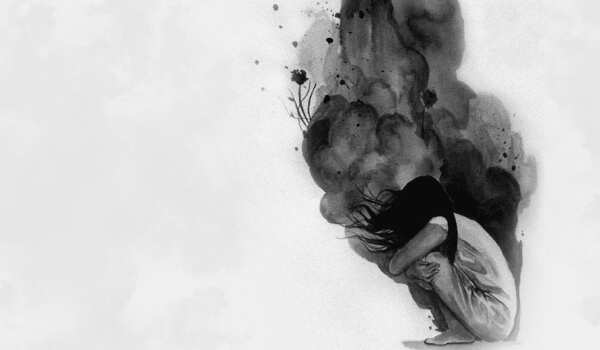There seem to be so many sad individuals that we should examine the underlying causes of depression. While the elements that contribute to depression are well-established and well-researched, the underlying reasons remain unknown. Recent research has identified many elements that contribute to an individual’s likelihood of getting depression.
Stress
The first place winner is stress. True, any stressful scenario or setting may contribute to depression. It might be social stress, difficulty finding work, marital troubles, financial concerns, staying up late, an out-of-control lifestyle, or educational expectations and grades. Other factors that may contribute to depression include death, job changes, and relocation; even dread of the unknown may contribute to depression. There are an infinite number of possibilities. While these occurrences are unavoidable, we must develop an efficient stress coping system to enable us to flourish even in the face of adversity. Situations that are stressful are always changing. Want to learn effective strategies for managing stress? **Click here to discover the 7-Step End Depression System!**
Alcoholism and Drug Abuse
Individuals who abuse drugs and alcohol are at an increased risk of developing depression. When these chemicals are abused at an early age, they may have a detrimental impact on a person’s brain. These drugs may momentarily improve a person’s mood, but in the majority of instances, individuals develop an addiction to them.
The pleasure area of the brain is stimulated by drugs. For instance, delectable food stimulates the release of dopamine by around 50%. On the other hand, sexual activity doubles this figure. Drugs, on the other hand, have the ability to enhance dopamine release by up to tenfold. After the artificial high subsides, this almost definitely results in depression. This chemical is the most effective method of destroying brain circuits.
Drugs are more likely to make a person sad than pleased. This impact spirals downhill until the user desires an increasing amount of the substance in order to break the cycle of depression that follows each high, and so the addiction begins. Need help breaking free from the cycle of addiction and depression? **Discover the End Depression System today!**
Sleep deprivation
According to studies, up to 40% of people do not obtain the recommended amount of sleep each night, while up to 71% of students complain of sleep problems and lack of sleep.
A person’s health is dependent on sleep. The body heals and reorganizes itself during sleep. Sleep deprivation relates to a loss of brain wave coherence. Depression is often the result of this event. Additionally, sleeping during the day and staying up late disrupt the body’s normal cycles. This might result in a depressive depression.
Listed below are many strategies for avoiding depression.
Sleep is critical for maintaining a healthy depression. Maintain a healthy balance in your life by getting sufficient rest and exercise daily. The average person need 7–8 hours of sleep every day.
Maintain a certain amount of consistency in your life. Arrange your activities in such a way that they occur at predictable and consistent times. If you establish a weekly, daily, or monthly regimen, your body will have time to adjust to the new activities. This results in a decreased risk of developing depression. Ready to create a more consistent and fulfilling life? **Click here to learn how!**
Click here to get this book for FREE! Only in February, 2026.
https://alphayomega.us/go/
Do not overextend yourself. Maintain a healthy level of stress and, if possible, avoid triggers. If this is not possible, then attempt to manage stresses in such a way that the harm they produce is minimized.
Sunlight and exercise may both aid in the brain’s performance. Allow yourself time to enjoy the sun and try to be active throughout the day if feasible.
Avoid drinking and illegal drugs. While they may seem appealing, they wreak havoc on a person’s life.
Make a daily goal of eating at least one hot meal. It is essential to maintain healthy eating habits and physical fitness in order to avoid depression.
Every day, be amused. Nothing relieves depression more than some good ol’ fashioned fun. Social activities such as conversing, joining a support group, participating in sports, and pursuing other hobbies may do wonders for a stressed-out and busy mind. Find joy and laughter in your life again! **Click here to discover fun and engaging activities!**
Depression is preventable and treatable, and the process may be enjoyable. Each day, follow the guidelines above for a more cheerful outlook. You will benefit both physically and psychologically as a result! Take control of your mental health and embrace a brighter future! **Start your journey to overcoming depression today!**
Check this article: Depression? The Top 6 Tips to Eradicate It Forever!







